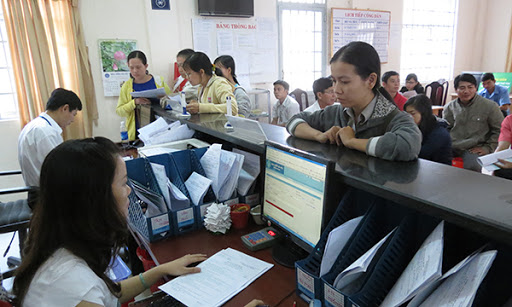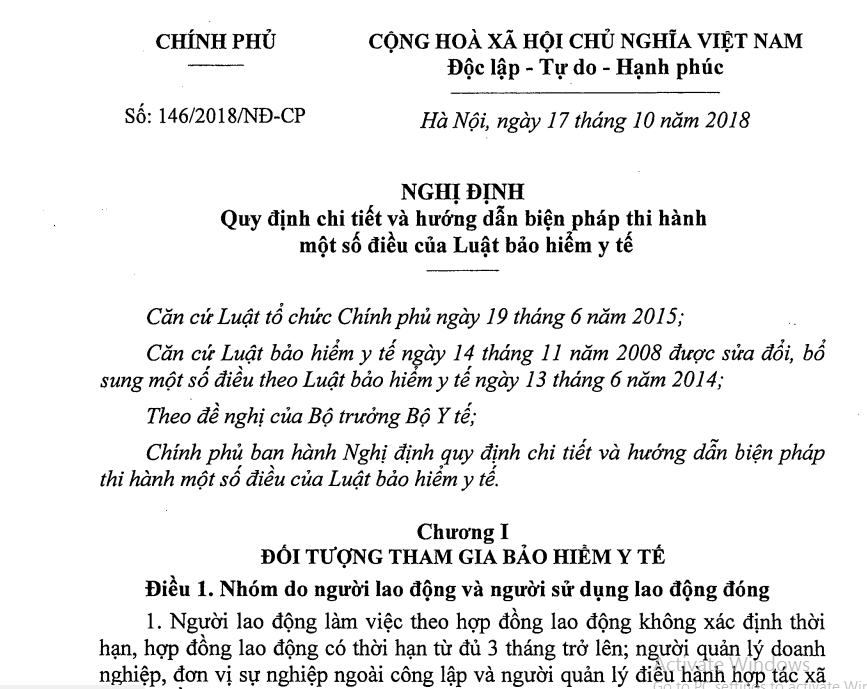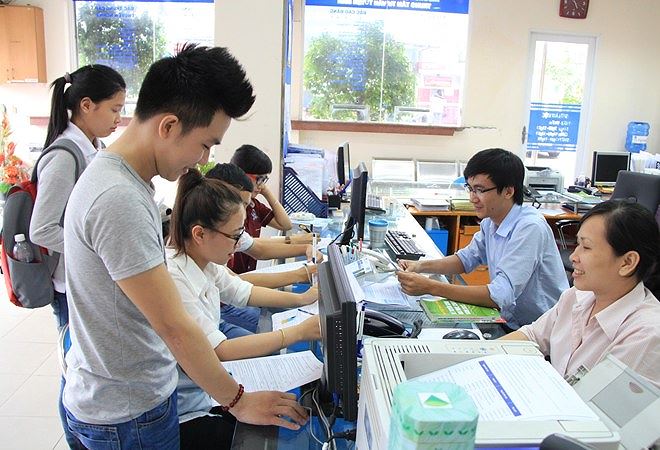After leaving their jobs, most workers wish to immediately receive a one-time social insurance payment to cover living expenses, invest, or start a business, etc. However, workers may not be aware that opting to receive a lump sum social insurance payment at this time only brings short-term benefits, but they will face many disadvantages later on.

Illustrative image
1. In what cases can an employee receive a one-time social insurance benefit?
According to Clause 1, Article 60 of the Law on Social Insurance 2014 and Clause 1, Article 1 of Resolution 93/2015/QH13, the law only permits the settlement of one-time social insurance benefits in certain cases. Specifically, employees are entitled to a one-time social insurance benefit if they fall into one of the following cases:
- Sufficient age to receive a pension but not having enough 20 years of social insurance contributions, in which the retirement age of the employee is:+ 60 years old for men, 55 years old for women;+ 55 - 60 years old for men, 50 - 55 years old for women with 15 years of working in heavy, hazardous, dangerous jobs or 15 years working in areas with a regional allowance coefficient of 0.7 or higher;+ 50 - 55 years old with at least 20 years of social insurance contributions, including 15 years of coal mining in underground mines;+ Any age if infected with HIV/AIDS due to occupational accidents.
- Female workers who are specialists or non-specialists at the commune, ward, commune-level town level, sufficient 55 years old upon termination of work but not having enough 15 years of social insurance contributions and not continuing to voluntarily participate in social insurance.- Leaving the country for settlement abroad.- Suffering from life-threatening diseases such as cancer, paralysis, ascites due to cirrhosis, leprosy, severe tuberculosis, HIV infection that has transitioned to AIDS, and other diseases as prescribed by the Ministry of Health.- Police officers or soldiers who are discharged from service or retire without being eligible for a pension.- Employees participating in compulsory social insurance after one year of unemployment, and those voluntarily participating in social insurance after one year of discontinuing contributions without having enough 20 years of social insurance contributions.
In these cases, if requested, employees participating in compulsory social insurance will be settled for a one-time social insurance benefit.
2. The disadvantages when employees receive a one-time social insurance benefit
According to Clause 3, Article 5 of the Law on Social Insurance 2014 on the principles of social insurance:
The period of social insurance contributions that has been calculated for a one-time social insurance benefit will not be accounted into the period for calculating other social insurance benefits.
Therefore, when receiving a one-time social insurance benefit, employees only see the immediate benefit of receiving a lump sum but do not see the long-term disadvantages, especially when reaching the retirement age. To be specific:
- The amount received from the one-time social insurance benefit is much less than the total contributions.
Article 5 of Decision 595/QD-BHXH stipulates that monthly, employees contribute 8% of their monthly salary to the retirement and survivorship fund; the employer contributes 14% based on the salary fund for social insurance contributions of the employee to this fund.
Thus, monthly, employees must contribute a total of 22% of their monthly salary to the retirement and survivorship fund, equating to 22% x 12 = 2.64 months of salary per year.
Meanwhile, Clause 2, Article 60 of the Law on Social Insurance stipulates that the one-time social insurance benefit is calculated based on the number of years of social insurance contributions, specifically:
- 1.5 months of the average monthly salary for the years before 2014;- 2 months of the average monthly salary for the years from 2014 onwards.
Compared to the amount contributed, the amount received from the one-time social insurance benefit is significantly less.
- The contribution period is not aggregated.
Specifically, according to the provisions of Article 61 of the Law on Social Insurance 2014, employees who terminate their contracts without being eligible for pensions or not receiving a one-time social insurance benefit can reserve their social insurance contribution period. In this case, if the employee has not received a one-time social insurance benefit, their contribution period will be accumulated with the previous one. Conversely, if the one-time social insurance benefit has been received, the future contribution period will be calculated from the beginning, which could result in the employee not being eligible for a pension upon reaching retirement age.
- They may not receive a free health insurance card.
According to Article 2 of Decree 146/2018/ND-CP, those eligible for social insurance contribution health insurance include:
- People receiving a pension, monthly labor loss allowance;- People receiving monthly social insurance benefits due to occupational accidents, diseases; retired rubber workers receiving monthly allowances according to the Government regulations;- Employees who take leave to receive monthly sickness benefits due to diseases needing long-term treatment as prescribed by the Ministry of Health;- Commune, ward, commune-level town officials who are retired receiving monthly social insurance benefits;- Employees on leave receiving maternity benefits when giving birth or adopting a child;- People receiving unemployment benefits.
Thus, people receiving pensions will receive a free health insurance card. If one has received a one-time social insurance benefit and does not qualify for a pension, they will not receive a free health insurance card but must participate under the household health insurance scheme.
Note: From 2021, the conditions for employees to receive pensions will be stricter. To be specific, according to Point a, Clause 1, Article 219 of the Labor Code 2019 amending Article 54 of the Law on Social Insurance 2014, from 2021, employees must have 20 years of social insurance contributions; men must be 60 years and 3 months old; women must be 55 years and 4 months old (then gradually increasing by 3 months per year for men and 4 months per year for women to reach 62 years old for men by 2028 and 60 years old for women by 2035).
Nguyen Trinh
 Article table of contents
Article table of contents
.jpg)




.Medium.png)
.Medium.png)
.Medium.png)
.Medium.png)
